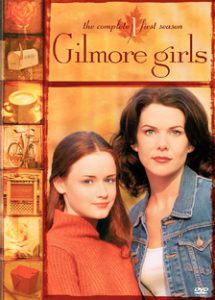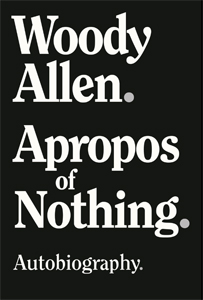Woody Allen’s autobiography, “Apropos of Nothing” (2020), strikes a balance of self-deprecating wit and insightful reminiscences about his life and career. Although he possibly typed it out (on a typewriter, as he is a technophobe who only learned how to text when Emma Stone taught him on 2014’s “Magic in the Moonlight”), it sometimes reads like it is dictated. Arcade Publishing’s copy editing has more errors than I’d like for a bio of such mass interest.
Still, I come away from “Apropos” knowing more about the writer-director than when I started, in both chronological facts and in a feel for the man. Like most people, Allen has contradictory elements. Notably, he’s both socially awkward and smooth. His quirk is an “entering phobia” — he needs assistance from a friend to get past the greeting stage at a gathering.
On the other hand, he has no hang-ups with women, as “Apropos” chronicles his dalliances, most of which are with other famous people. Some might criticize his extreme interest in the beauty of women (although that’s never the only trait he admires). But, especially when combined with how beauty distracted him from less savory traits – notably with the troubled Louise Lasser and his enemy-to-be Mia Farrow – one could argue that Allen is honestly and thoroughly portraying his central flaw.

I was interested to learn that the Allen film I most often defend as underrated – 2003’s “Anything Else” – is particularly autobiographical. Christina Ricci’s character is based on Lasser, the unstable “Bananas” actress who was Allen’s second wife (1966-70). And that film’s wise (or perhaps insane) mentor – played by Allen himself – is based on one of Allen’s mentors.
Trusting his instincts
Allen reveals the best advice he received as an up-and-coming stand-up comic: Trust your instinct of what’s funny. Even as an Allen fan, I admit not every one of his 50-plus films is a winner (Allen would be even harsher than I am). But by sticking to his guns, he has certainly had more success than he would’ve with the opposite approach – taking to heart every criticism and trying to please everybody.
I get a sense that part of why he works quickly – putting out nearly a film per year (although he’s been slowed recently by COVID, the #MeToo movement’s rehashing of dubious molestation accusations, and the fact that he’s 87) – is so that he doesn’t overthink his filmmaking instincts to the point of freezing up.
Although Allen doesn’t watch his films after he has completed them with his editor, he does remember the shooting process and his impressions of the final cuts. Allen is dismissive of his writing and directing, claiming he’s never made a great film, and surprisingly dubbing 2017’s “Wonder Wheel” his best. (As a funny contrast, he claims he’s an angel on the set when hired to act in someone else’s film.)

But, like a gift to the obsessive reader, he has a something to say about all his movies. We learn which of his films he thinks are good, which he thinks are bad, and which he thinks are misunderstood. For the most part, he has good taste in his own oeuvre, although you’ll find a few surprises.
I sometimes wished for more insight into what he thinks makes certain actors and actresses great (he praises about 95 percent of the people he name drops). On the other hand, I sense that he doesn’t think that way; he appreciates people’s skills but doesn’t analyze them, especially if he’s close to the work.
He doesn’t avoid the elephant
Perhaps unavoidably if he’s going to give a balanced account of his life, a large chunk of “Apropos’ ” text is devoted to the accusations (investigated and legally dismissed) by his then-7-year-old daughter Dylan Farrow – perhaps coached by her mom, Mia – that Allen molested her. Some people might enjoy this early-1990s section (which has a redux later, as Dylan repeated the allegations during the 2010s) for the storytelling value, some for the facts, some for Allen’s point of view.
I think it’s a shame that it takes over the narrative, but it is a big part of the author’s life (even though he and his fans don’t like it). Allen does a service in illustrating the ease of legal corruption (a judge that was out to get him) and the mob mentality of celebrities anxious to avoid being associated with a pariah. Ironically, though, no one’s careers have been hurt by speaking out against the smearing of Allen.
Allen raises the question of why the accusations are still news. I think it’s partly because he himself is a celebrity – and indeed that special class of “tabloid” celebrity, in that he has often crossed paths with other celebrities. He’s an “other” to John Q. Public.
Maintaining control
This death-fearing quipster who believes life is meaningless has, by his own admission, led a fortunate life with a lot of breaks. He has found backers to give him total control of all his films since the mid-Seventies.
There was a slight glitch in the 2000s until he learned that Europeans were interested in getting into the Allen business. This led to 2005’s “Match Point” (which he describes as a charmed film, and I agree) and several strong subsequent productions in England, France and Spain. (The France-filmed “Coup de Chance” is planned for release later this year.)
Also, he has lived his whole life in New York, dining at fine restaurants and enjoying conversations with friends who are famous, talented or both. Although he claims he’s not on the same level of fame as the Farrow dynasty, and he describes himself as “middle class,” the fact remains that most readers can’t afford to vacation in NYC let alone live there. I think Allen is a decent man, but I hesitate to call him a common man.
Whether the topic is his films, his women, or his ugly struggles in the court of public opinion, one constant is that Allen can write. His prose flies from the page to the reader’s brain. Like his knack for knowing the proper length of a film (about 100 minutes), he moves from one subject to the next briskly but not shallowly. He exits just short of 400 pages — with slightly large print, and I did not read the Large Print edition, so perhaps this is a nod to his aging fanbase.
“Apropos of Nothing” is like one of Allen’s great films, but not on the level of his very elite films (“Hannah and Her Sisters,” “Annie Hall” and “Crimes and Misdemeanors,” in my opinion). It entertains while also giving me new things to think about.

